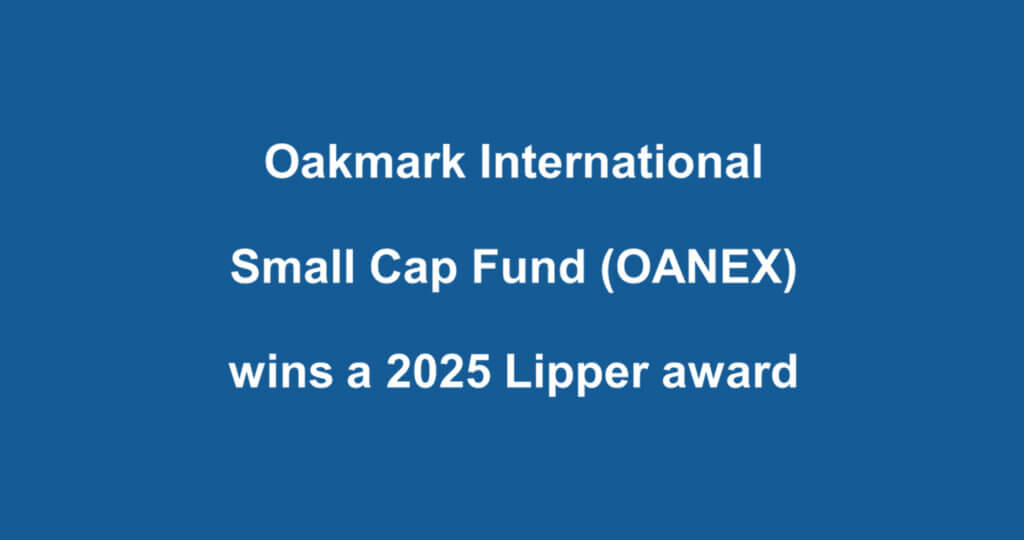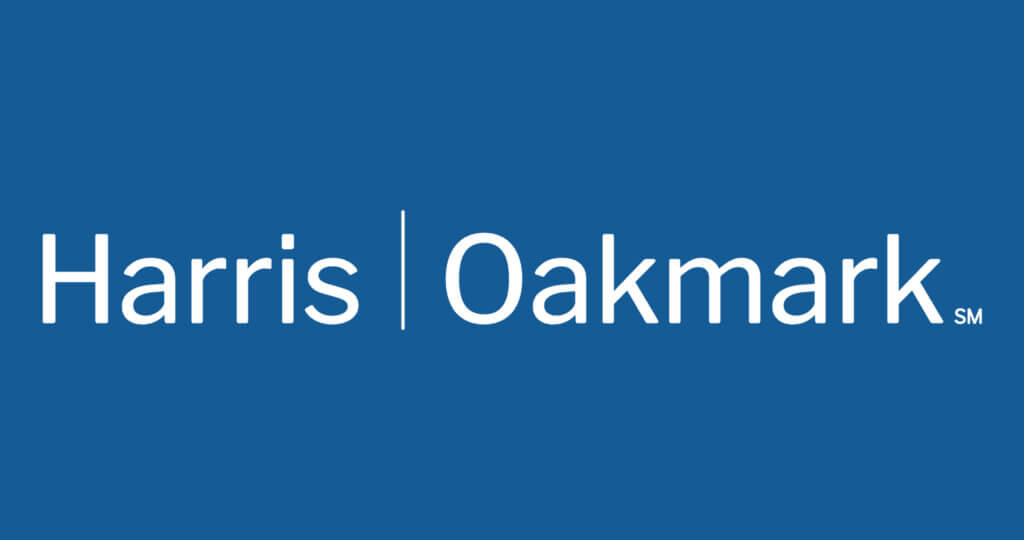Oakmark International Small Cap Fund - Investor Class
Average Annual Total Returns 03/31/12
Since Inception 11/01/95 10.51%
10-year 10.87%
5-year -0.85%
1-year -1.97%
3-month 19.77%
Expense Ratio as of 09/30/11 was 1.38%
Past performance is no guarantee of future results. The performance data quoted represents past performance. Current performance may be lower or higher than the performance data quoted. The investment return and principal value vary so that an investor’s shares when redeemed may be worth more or less than the original cost. The performance of the Funds does not reflect the 2% redemption fee imposed on shares redeemed within 90 days of purchase. To obtain the most recent month-end performance data, view it here.
The Oakmark International Small Cap Fund returned 20% for the quarter ended March 31, 2012, comparing favorably to the MSCI World ex U.S. Small Cap Index, which returned 14%. For the Fund’s fiscal six months, the return was 24%. This compares to 14% for the MSCI World ex U.S. Small Cap Index. For the past 10 years, the Fund has earned an annualized rate of return of 11%, compared to the MSCI World ex U.S. Small Cap Index, which has returned 10% for the same period.
While international small-cap stocks had strong advances in the quarter, the number of attractive investment candidates did not decline. This quarter we added six new securities from across the globe to the Fund: Altran Technologies (France), Autoliv (a Swedish-American company), Takata (Japan), Treasury Wine Estates (Australia), Brunel International (Netherlands) and SThree (U.K.).
Of the new securities we purchased this quarter, Autoliv and Takata both manufacture car safety equipment. We believe that safety equipment providers make up one of the most attractive subsegments in the auto-supply arena because their growth comes from increased vehicle production, mandatory regulation, customer preference and content penetration in the emerging world. We were glad to have the opportunity to add two to the Fund this quarter.
Autoliv is the world’s top manufacturer of car safety equipment and is benefiting from positive trends in the global auto industry. Autoliv has strong ties to both European and North American original equipment manufacturers, as well as to Japan’s three largest automakers, and it is increasing its presence in emerging markets. Passive auto safety is an industry dominated by three major participants that together capture 76% of the total global market. Autoliv has 36% market share, followed by TRW Automotive (U.S.) and Takata, each with 20% share. Originally a textile maker, Takata is now one of the most diversified Japanese auto suppliers in terms of customer mix and geography. While the company sells to nearly all of the leading auto companies, over 50% of its sales are to non-Japanese original equipment manufacturers and 80% of its sales come from outside Japan. Emerging markets account for approximately 25% of sales. However, recent economic conditions, in addition to natural disasters that especially hurt the auto industry, lowered Takata’s stock price. We expect that the rebound in vehicle manufacturing will boost Takata’s production and revenue growth, and we took advantage of the company’s stock price dip to purchase shares of this high-quality company.
Altran is the largest engineering outsourcing firm in Europe. Its main client industries are aerospace, defense and telecommunications. A new management team recently took over at the company, which we believe will help Altran generate margins and returns more in line with its peers. Treasury Wine Estates was spun off from Fosters Group in 2011. The company operates vineyards and markets, and it distributes wine globally. Brunel International and SThree are both in the recruitment industry. Brunel supplies professional temporary staff for mostly engineering and IT sectors, and its primary markets are the Netherlands and Germany. Although SThree began as a dedicated IT recruiter, it now also specializes in the pharma, biotech, banking and finance sectors. SThree is active in both the permanent placement and temporary markets. We sold our positions in Exact Holding, Ansell and Wavin during the quarter.
The top-performing stock in the Fund this quarter was Australian food manufacturer Goodman Fielder. When Goodman’s stock price declined in late 2011, it was the Fund’s largest detractor for the year. However, it gained value through most of January, and in February, the stock price jumped due to the news that Wilmar International, the world’s largest palm oil trader, bought a 10% stake in the company. We are watching the situation closely, as Wilmar is also evaluating whether to purchase more shares in Goodman Fielder, possibly acquiring all of Australia’s biggest baking company.
Geographically, we ended the quarter with our European holdings decreasing slightly to 54%, and Pacific Rim holdings comprised 43% of the portfolio.
Because we believe the U.S. dollar remains weak relative to a number of other currencies, we continue to hedge some of the Fund’s currency exposure. At the recent quarter-end, approximately 65% of the Fund’s Australian dollar, 55% of the Norwegian krone, 40% of the Swiss franc, 35% of the Japanese yen and 20% of Swedish krona exposures were hedged.
We thank you for your continued confidence and support.
As of 3/31/12, Altran Technologies represented 0.7%, Autoliv, Inc. 0.4%, Takata Corp. 1.2%, Treasury Wine Estates Ltd. 0.9%, Brunel International NV 0.1%, Sthree PLC 0.2%, TRW Automotive Holdings Corporation 0%, Fosters Group Ltd. 0%, Exact Holding NV 0%, Ansell Ltd. 0%, Wavin NV 0%, Goodman Fielder, Ltd. 2.6%, Wilmar International Ltd. 0% of the Oakmark International Small Cap Fund’s total net assets. Portfolio holdings are subject to change without notice and are not intended as recommendations of individual stocks.
The MSCI World ex U.S. Small Cap Index (Net) is a free float-adjusted market capitalization index that is designed to measure global developed market equity performance, excluding the U.S. The MSCI Small Cap Indices target 40% of the eligible Small Cap universe within each industry group, within each country. MSCI defines the Small Cap universe as all listed securities that have a market capitalization in the range of USD200-1,500 million. This benchmark calculates reinvested dividends net of withholding taxes using Luxembourg tax rates. This index is unmanaged and investors cannot invest directly in this index.
Investing in value stocks presents the risk that value stocks may fall out of favor with investors and underperform growth stocks during given periods.
The stocks of smaller companies often involve more risk than the stocks of larger companies. Stocks of small companies tend to be more volatile and have a smaller public market than stocks of larger companies. Small companies may have a shorter history of operations than larger companies, may not have as great an ability to raise additional capital and may have a less diversified product line, making them more susceptible to market pressure.
Investing in foreign securities presents risks that in some ways may be greater than U.S. investments. Those risks include: currency fluctuation; different regulation, accounting standards, trading practices and levels of available information; generally higher transaction costs; and political risks.
The discussion of the Funds’ investments and investment strategy (including current investment themes, the portfolio managers’ research and investment process, and portfolio characteristics) represents the Funds’ investments and the views of the portfolio managers and Harris Associates L.P., the Funds’ investment adviser, at the time of this letter, and are subject to change without notice.








